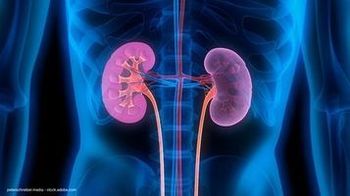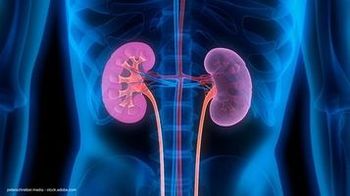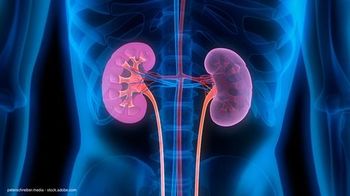
Cancer drug combination may increase risk of death
Cancer patients treated with the angiogenesis inhibitor bevacizumab (Avastin) may be at an increased risk of treatment-related death when the drug is used in combination with other therapies, say researchers from Stony Brook University School of Medicine, Stony Brook, NY.
Cancer patients treated with the angiogenesis inhibitor bevacizumab (Avastin) may be at an increased risk of treatment-related death when the drug is used in combination with other therapies, say researchers from Stony Brook University School of Medicine, Stony Brook, NY.
Senior author Shenhong Wu, MD, PhD, and colleagues reviewed 16 published randomized controlled trials on the clinical use of bevacizumab and completed a meta-analysis of adverse effects and mortality rates of 10,217 patients with a variety of advanced solid tumors. The meta-analysis included two phase III trials of renal cell carcinoma and one phase III prostate cancer study.
Bevacizumab is FDA-approved for the treatment of metastatic renal cell carcinoma in combination with interferon alfa, as well as colorectal and lung cancer. It is not approved for the treatment of prostate cancer.
"We discovered the use of bevacizumab in combination with other chemotherapy or biological therapy increased the risk of treatment-related mortality by 46%," Dr. Wu said. "Because of this significant risk in a large population of cancer patients, it is important for physicians and patients to recognize the risk when considering therapy, as well as closely monitor serious side effects to prevent fatal events."
Roche Holding AG, which makes bevacizumab, said the study results are skewed because the researchers included failed clinical trials, including the prostate cancer study. The data indicate that the safety risks are not higher for bevacizumab than for chemotherapy alone when the drug is used for its approved indications, Roche CEO Severin Schwan told the Wall Street Journal.
The authors, writing in JAMA (2011; 305:487-94), reported that the overall incidence of fatal adverse events (FAEs) with bevacizumab was 2.5%. Compared with chemotherapy alone, the addition of bevacizumab was associated with a 1.5 times increased risk of FAEs. This association varied significantly with chemotherapeutic agents but not with tumor types or bevacizumab doses. Bevacizumab was associated with a 3.5 times increased risk of FAEs in patients receiving taxanes or platinum agents (3.3% vs. 1%), but was not associated with increased risk of FAEs when used in conjunction with other agents.
Common specific causes of FAEs included hemorrhage, neutropenia, gastrointestinal tract perforation, pulmonary embolism, and cerebrovascular accident. Pulmonary and gastrointestinal hemorrhage accounted for most fatal bleeding events.
The authors wrote that given the absolute risk of treatment-related mortality appears low, the use of bevacizumab should be considered in the context of overall survival benefits.
Newsletter
Stay current with the latest urology news and practice-changing insights — sign up now for the essential updates every urologist needs.





